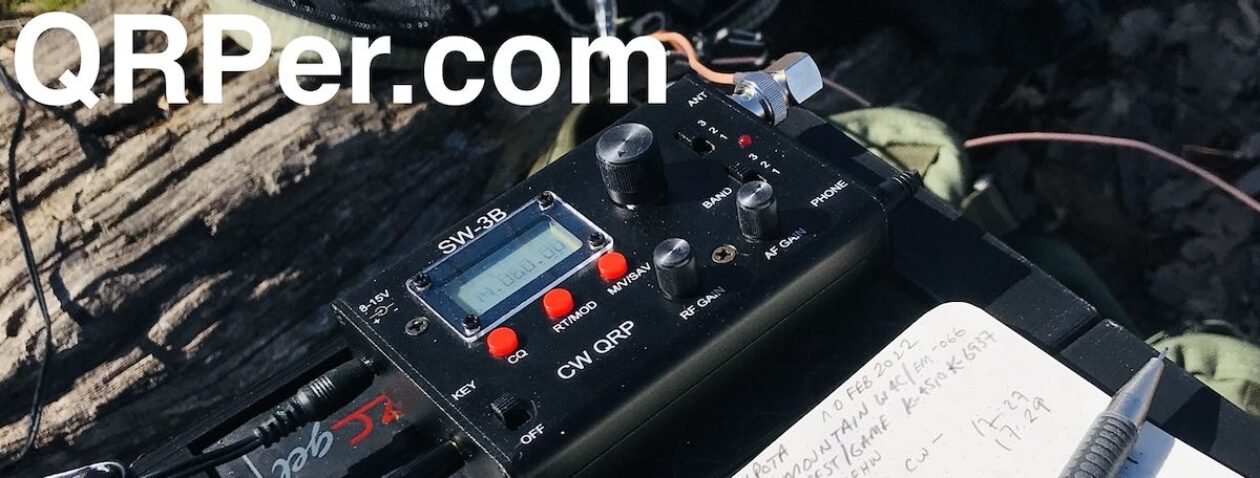By Teri KO4WFP
Jonathan KM4CFT reached out to me recently to inquire if I was interested in trying his CFT1 QRP transceiver. The inquiry both surprised and delighted me as I’ve never had such an opportunity.
I nearly said no because I am no antenna expert and, as this rig has no internal antenna tuner, I’d need to learn more about antennas, SWR, and resonance.
My limited antenna experience dates back to when I first entered the hobby. I had ZERO antennas and no idea where to start. An acquaintance suggested I make a home-brew linked dipole and gave me a few pointers in doing so. I vividly remember limping through learning how to trim an antenna. That project taught me that I want as low a SWR as possible and to cut the antenna for the portion of the band on which I want to operate.

Those of you who read my articles here on QRPer know that I use an Elecraft KX2 for my field operations. I’m very happy with this radio and love that it has an internal antenna tuner. But the CTF1 does not. Here is where my hesitation and trepidation at trying this unit entered the picture. I figured the antennas I use on a regular basis might not play nice with the CFT1 and hence my reluctance to say “yes” to this opportunity.

But this is ham radio, right? In ham radio, we relish challenges because they are opportunities to learn. This was my opportunity to learn not only about antennas in general but also to be more thoughtful as to how I deploy them in the field. This was an opportunity for growth.
I dug out the RigExpert Stick antenna analyzer I purchased nearly three years ago and tested each of the antennas I currently have, just for jollies. I understand that many factors impact SWR – height of the antenna, coax length, proximity of other objects, etc. For the purpose of this exercise, I just wanted a ball park idea as to what antennas I could or could not use with this rig without a tuner.
I found both the home-brew linked dipole and the Chelegance MC-750 would work fine. Out were the EFRW and AX1. As I’d been hankering for an EFHW in my kit, I purchased the Sparkplug EFHW and trimmed it. These kinds of projects intimidate me because I do not have much experience with them; however, one cannot learn what one does not attempt.
I used the CFT1 on three activations: April 25th at the Savannah National Wildlife Refuge (NWR) (US-0522) with the Chelegance MC-750, April 30th at the refuge again but this time with the Sparkplug EFHW, and Thursday, May 1st at George L. Smith State Park (US-2179) with the Chelegance again.
It was a warm day at the refuge on April 25th. I selected an open area in which I had set up in the past. There were wild blackberries growing directly under the oaks in the shade. The view was lovely and, when not engaged with the activation, the red-wing blackbirds, coots, and other birds kept me entertained. Unfortunately for me, the sun moved out behind the oak trees not long after I arrived and I soon called QRT to avoid being baked.





I was pleased with the QSO map for this activation – 27 contacts on 40, 20, and 17 meters over the course of an hour and a half.

My second experience with the CFT1 was on April 30th, again at the Savannah NWR, however, this time using the Sparkplug EFHW. I found a different spot, one I passed up before but was usable today as it was freshly mowed. There were wonderful, tall oak trees at this location which afforded shade and high, unencumbered branches for installing an antenna aloft. Continue reading The POTA Babe Tries the CFT1


































































































